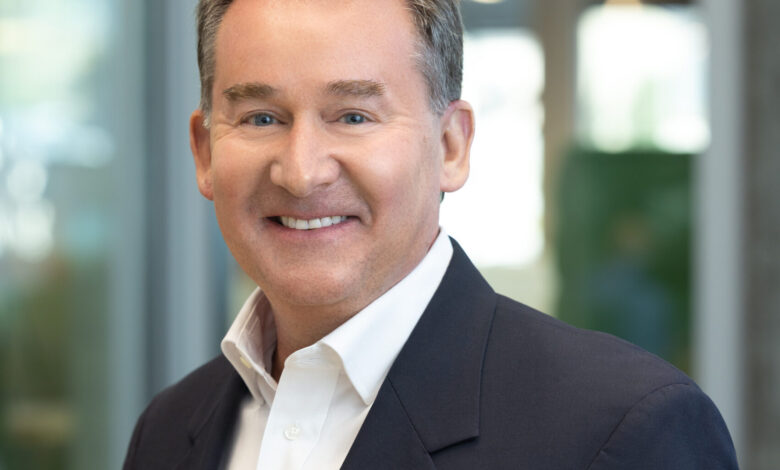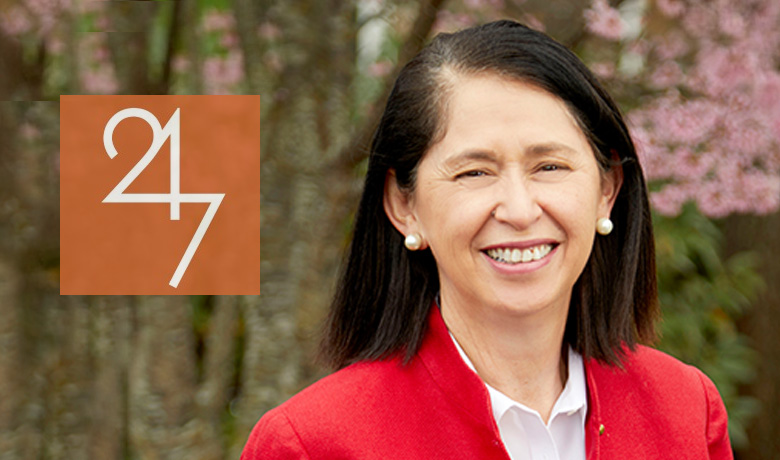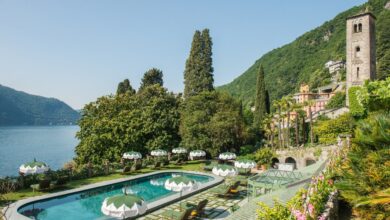
Engaging with Executives: LivAway Suites’ COO Kevin Dailey
By David Berman | August 15, 2023
Our Engaging with Executives series consists of one-on-one Q&As with executives around the hospitality industry, breaking down recent trends and news in their companies and the industry as a whole.
Today’s interview is with Kevin Dailey, COO of LivAway Suites. LivAway is a new extended-stay brand that launched in January. Dailey joined the company in June 2022 after stops at Red Roof Inns, Motel 6, LaQuinta Holdings and Nationwide Hotel Management Company, LLC.
In this Q&A, Dailey reflects on his first year with LivAway, discusses the company’s “tech-forward” approach and forecasts the future for the new brand.
Hotel Interactive: I’d love to start off by asking you to reflect on your first year with LivAway.
Kevin Dailey: Well, in a word, it’s been great. It actually has been the highlight of my career. When I think back of my 35 years in the industry; you’re working with big brands, and I had that time with a third party management company, you learn a lot. I’ve been very fortunate to learn from some of the bigger brands in the industry, at least in the economy and midscale space. But you also make a few mistakes, truth be told, along the way. So when the opportunity came to be a part of something new, a clean slate … now, LivAway had been in various planning stages for about 18 months prior to me joining. So it kind of was born during the pandemic, the second half of 2020. But having an opportunity to come in at the ground level and really be a part of creating a brand new concept — a platform, if you will, some call it a brand, but here at LivAway we call it more of a platform — it has been awesome.
It really has. It’s been a lot of fun. Now, (it’s been a) whirlwind year, too. We’ve accomplished quite a bit. We launched our brand in January … but since then we have broken ground (on a few sites), this week will be our fourth site. And we are leading the way, by the way, in development on the corporate side. Before we ever sign our first franchise agreement, we’ll have at least seven of these underway and under construction. We’ve had ceremonies in Nashville, we have another great site in Tennessee, we had one in West Jordan, Utah, which is very close to where we’re based just south of Salt Lake City, and that was well attended. And we’ve got two more this week breaking ground as well.
HI: Next, let’s talk about LivAway being a new brand. What are some areas where LivAway tries to differentiate itself among competitors?
KD: Absolutely. So when I think about competitors, I think of two groups. First, there’s from a developer’s perspective, or from being a franchisor, or a future franchisor, and then I think about guests. We have trademarked two taglines, if you will, that really kind of underline everything we do at LivAway. So first is “For developers, by developers.” That was really the founding principle of how LivAway got started and why we’re in this space. It’s really less about being a franchisor, and a brand or a platform, and more about being acutely focused on making the real estate successful. So whether that’s a corporate location, or a franchisee, that really is our underlining principle.
So differentiators, we have the best fee structure in all of extended stay. End of story. We are all about transparency. So we have 100% procurement savings that we pass on to our franchisees. There are no kickbacks coming back to the brand at all from any of our vendors. Whatever we negotiate for ourselves, whether it be our property management system, any of our tech stack, we pass those savings on 100% to our franchisees. I’m not aware of – and I’ve been around for a bit and been with the brands – I can tell you, I’m not aware of any other brand or platform or franchisor that does that in any space of the hotel industry. So I think when word gets out about those two points, potential development partners are really going to see that as differentiating two factors, if you will.
Another thing is we have skin in the game, as I’ve said, and we’re leading the charge here in development on the corporate side. And you know, the big franchisors let’s face it, they just don’t. They have a different model. And that’s okay, I respect that, but it’s not who we are. We’ll be our own test ground, if you will, our own sandbox, and we’ll learn from things that we do right and things that we need to improve on. And in collaborating with our partners we’ll continue to evolve and make a better brand, better for the real estate.
So on the guest side, we have another tagline we’ve trademarked and it’s, simply, “Our guests deserves better.” Things like our Scandinavian inspired design of our guestrooms and our buildings, with clean lines, bright colors; it’s a little different. You’ve probably stayed at some of our future competitors’ hotels. Let’s just be honest, (they’re) a little long in the tooth, a little old, need renovations, and perhaps not (our) bright clean look. When you walk into one of our lobbies, you will definitely know how bright and clean and refreshed and brand new we are. I know we’ll talk about technology, but we really see kind of the entire tech stack, if you will, from a guest-facing perspective as differentiators. Other things, being in the business so long, I know that the two biggest complaints, and they’re really neck and neck, have traditionally been noise and odor. And so the design of the prototype speaks to those two things, from an exhaust system standpoint, from a noise-mitigation standpoint room to room or up above a floor and down below a floor.
HI: Are there any challenges this first year on the development side that LivAway has faced? What are some strategies that you’ve used to counteract those?
KD: Entitlement takes a minute, as you probably well know. So it’s not like you acquire another branded hotel and rebrand it to a LivAway Suites. We’re 100% new construction. So it takes a minute in some municipalities. It can be months to a year plus, really, it just depends. You’re constantly collaborating with your civil engineer and your local contacts in each municipality. For me personally, that’s been perhaps the biggest challenge this year. The good news is the development team was well in place long before I got involved. And that was one of the first things that was focused on; more about the development of corporate real estate than it was about the brand or the platform. Hence the timing of my entry, they got an 18 month head start on me. So I would say that’s been the biggest challenge. But it’s not unique to LivAway, right? Any developer that is looking to build a brand new hotel is experiencing the same types of things.
HI: I want to talk in general about the “tech-forward” side of the company. What does being a tech forward hospitality firm mean to you in 2023?
KD: From a guest facing standpoint, everything from our self-check in kiosks that will be in every vestibule in every LivAway Suite; it’s full service. Guests *can* come to the front desk and interact with the front desk representative they choose. If during the overnight hours, the front office is closed, the kiosk is there. It can do everything that a person behind the front desk can do including issuance of keys, ID verification, chip and PIN verification with credit card payments. It really is pretty slick technology. A branded mobile app where guests can check in before they arrive. They’ll still have to present ID and credit card chip and PIN verification. But still, they can do quite a bit of the pre registration, if you will, prior to even coming to the hotel.
The in-app guest texting; everything we’re doing with technology has two benefits. The first benefit is guest-facing, obviously. We want to enhance the guest experience. We want to be more livable, if you will, in an extended stay hotel. More like home, so to speak. But it also has to speak to operational efficiencies. One of the beauties in this model is you can operate a 126 room LivAway Suites, with five to seven full time employees or full time equivalents. So with respect to that labor model, you need to have technologies that either reduce steps, if it’s a room attendant or a maintenance person going room to room, so they can reinvest their time in the quality of the guestrooms and suites, or it’s the front desk that you can actually close for a few hours in the overnight hours and still allow guests to check in or pay for another night or issue another key. So it’s those type of things that we think are different.
Chrome casting in our guestrooms, you know today it’s all about content, right? Me personally, when I go into some hotels, I get a little leery with my password. If I have to sign on to Netflix or Amazon Prime, I get a little bit leery. So our TVs just simply cast from your device. And I think that’s, at least in this space, we think that’s a differentiator. We’re also gonna have smart parcel lockers. You think about it, if you’re an extended-stay guest, you’re going to receive Amazon, you’re going to receive UPS packages. It’s your home away from home, you’re there for weeks, in some cases, months. So for our parcels, its zero interaction. It kind of speaks to guest facing benefits as well as labor model benefits. Our parcels are completely smart. They’re carrier agnostic, so it doesn’t matter if it’s UPS or Prime or whomever, right. They have their own unique code. Guest has a package, (the carrier) opens up a locker of their choice, puts the package in, closes it. As soon as it closes, that guest in real time gets a text or an email, whichever they prefer, and they know they have a parcel, they know their unique code, and they know what locker number to get it. They can come retrieve the parcel at three in the morning or three in the afternoon. It doesn’t matter. They don’t need our staff there to do it. And as soon as that package is received, that parcel system will communicate with the property management system, and let the front desk know that that package has been retrieved, and it’s no longer there. I don’t know anybody else, not only in this space, but anywhere in the transient side, that currently is doing that.
Things like our guest laundry. We have our laundry machines that will, if the guest chooses, text the guests when their laundry is finished, so they don’t have to sit in the guest laundry room and waste time while they’re watching their laundry go round and round. So it’s things like that, that we feel that by themselves perhaps aren’t a big differentiator, but you put it all together, holistically. I don’t know anywhere else doing what we’re doing.
HI: I’ve heard a bunch of panels at different industry events about technology in the industry, and something I’ve heard come up a lot is balancing the human interaction side of hospitality with technology and toe-ing that line between convenience and accessibility but also letting people have a human interaction. What is your philosophy there?
KD: Yeah, great question. I mentioned earlier that the kiosk isn’t just for the overnight hours. So it’s really the guests’ preference. If they choose to use the kiosk and have more of a touch-free experience to check in, they can. If they want to go through the vestibule and approach the front desk, and interact with one of our front desk representatives, they can. Same thing with parcel lockers. If they don’t want to pick their package up at three o’clock in the morning, they’d rather do it during normal business hours and have assistance from the front desk, they certainly can. So we believe in choice. We do want to leverage and harness the power of technology to enhance the guest experience, and also assist in operational efficiencies, but we don’t want to have that be our way or the highway. Let the guests choose.
HI: Industry-wide, where do you see the implementation of technology going over the next couple of years? What are technologies that you see being implemented industry wide, both in the short term and the long term?
KD: So they say that copying is the best form of flattery, or words to that effect. My hope is that once we have hotels open and the word’s out, our entire tech stack, if you will, that you’ll start to see things like a kiosk in hotel vestibules, or the smart parcel lockers, which we think we’re a leader, if not a pioneer, in that space. Those type of things that we’re incorporating, I hope catch on because I think they make sense. They fit into our model from a financial perspective, and I do believe they’re going to enhance the guest experience while proving efficiencies.
Now, moving forward to address your question. I get a little leery with AI as it relates to the industry. I’m old school, let’s face it. And so I believe that, to your point earlier about that human to human, or employee or associate to guest, interaction is paramount. So at LivAway we’re never going to lose sight of that importance. So, we’re not contemplating utilizing AI. I know a lot of brands now are diving into the space of ChatGPT and handling online reviews as just one example of a potential use in the industry. We’re going to have a real human being respond to every guest review, and interact with guests. In my experience, most guests don’t tell a brand or a hotelier or general manager a problem that they experienced because they’re looking for something. The vast majority in my experience is they just want to be heard. But more importantly, they want to make sure no one else experiences that defect or that problem. I don’t know how you bridge the gap between responding to a review through AI and actually making meaningful change at the hotel level without human interaction.
HI: I was just about to ask about AI, so I appreciate you giving your perspective there.
KD: I think it’s a little disingenuous. It just doesn’t feel like hospitality to me.
HI: I have heard a lot of similar perspectives there, that it’s something that you have to really be careful about when you’re looking into.
KD: Yeah, I mean, 10 years from now, I might be proven wrong. We’ll see. Time will tell, but as I sit here today, we’re going to push the tech envelope just to the point of falling short of AI.
HI: What’s next for LivAway as a brand? What are some of the goals for 2024 and beyond for the company?
KD: Thank you for asking that. So I mentioned on the development side, on the corporate end, we’re going to do at least 10, and perhaps accelerate that. It just depends on entitlement and finding the right sites in the right markets. So on the corporate side, we’re definitely full steam ahead on our commitment to lead by example, if you will, and continue to have skin in the game. Early July, we finalized our Franchise Disclosure Document. July 5, it was finalized, July 6 we had our first conversation with a developer who had been reaching out to us for several months, hearing about our concepts since we launched in January. We’ve probably had 10, or more, meaningful conversations with qualified, multi-unit development groups that are very interested in becoming partners.
Let’s face it, it’s the hottest segment in the industry, extended stay. I think in particular economy extended stay, because of the margins, it’s even more attractive than upper midscale, as an example, and so that in and of itself has sparked interest. Then once we start educating potential partners on our fee structure and our 100% pass through savings and no kickbacks, and our program fees transparency. It really does liven the conversation, I’ll say. I think we’re off to the races. We have our money where our mouth is. We have a great platform, we feel, that we’ve developed, and we’ve got some great contacts with some great qualified developers that recognize the beauty of the space. I’d be surprised if we don’t have multiple agreements by year end.
This conversation has been lightly edited for length and clarity.





Get involved!
Comments